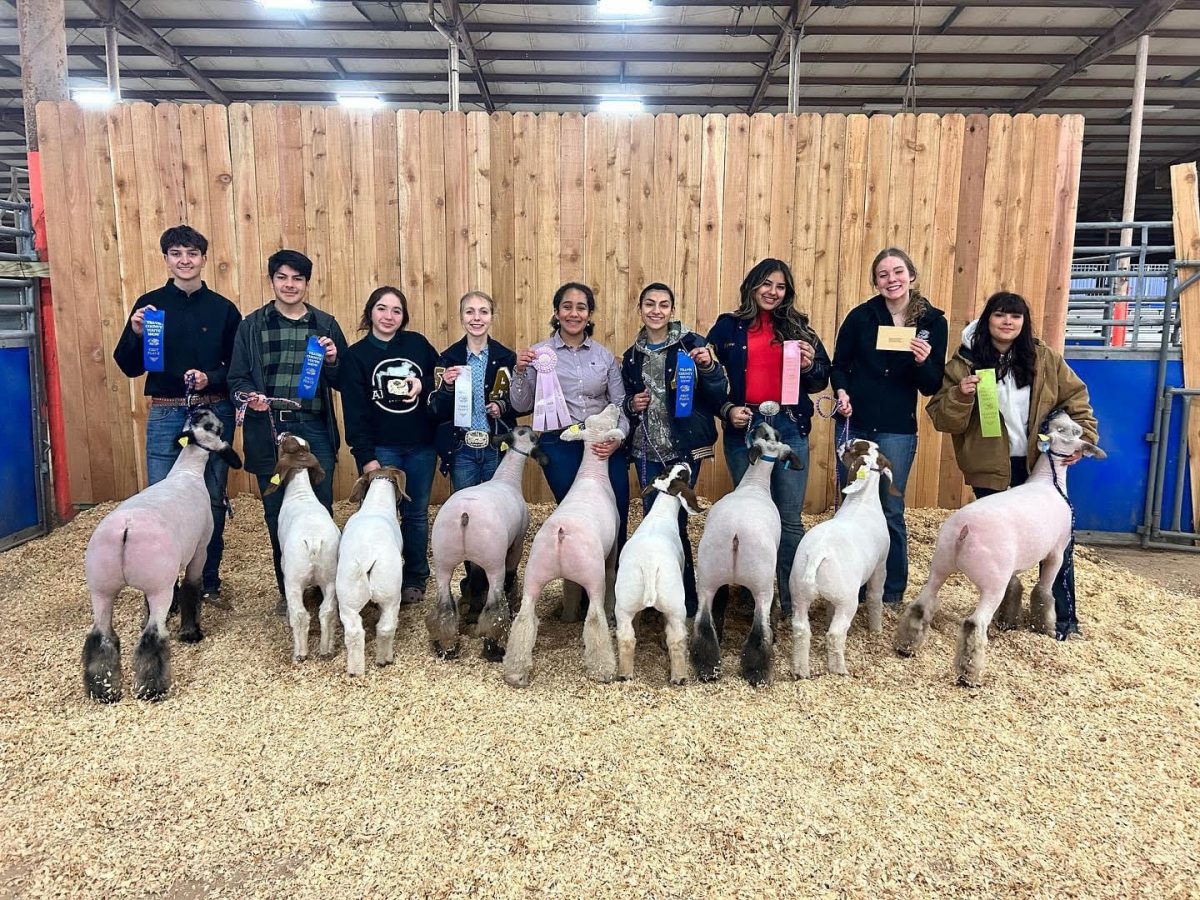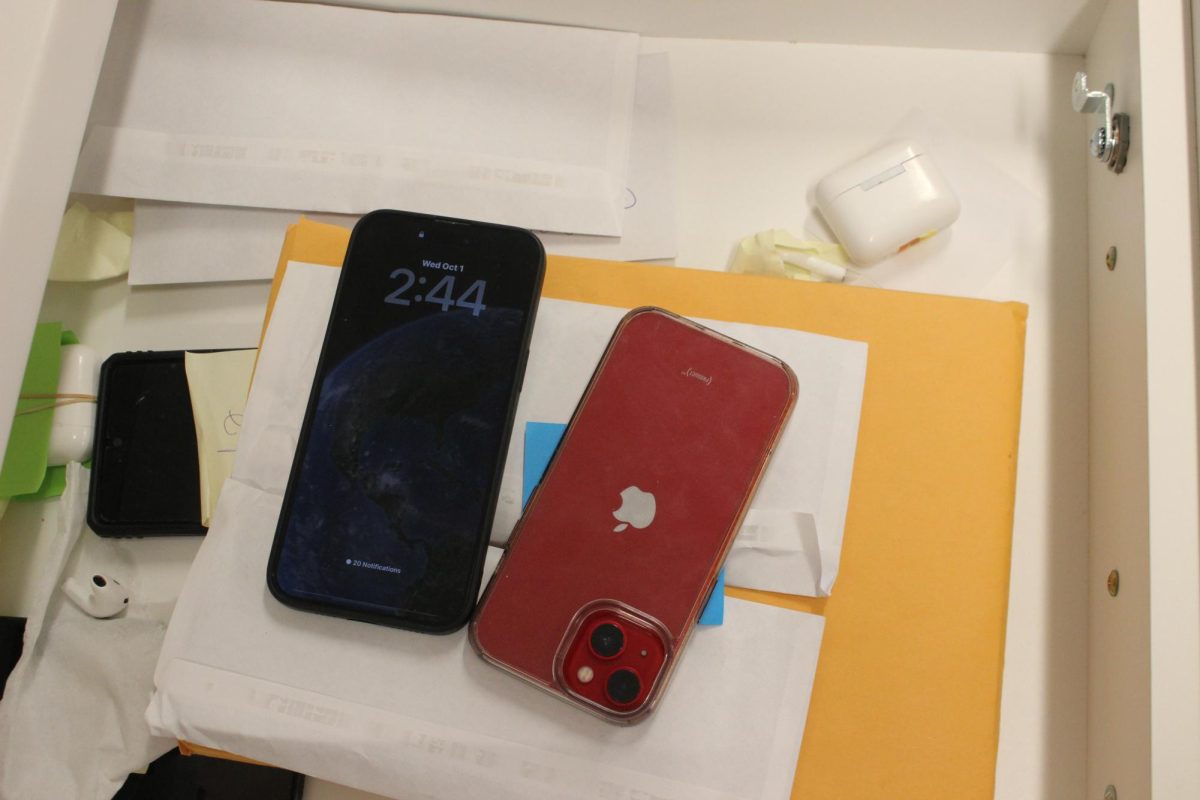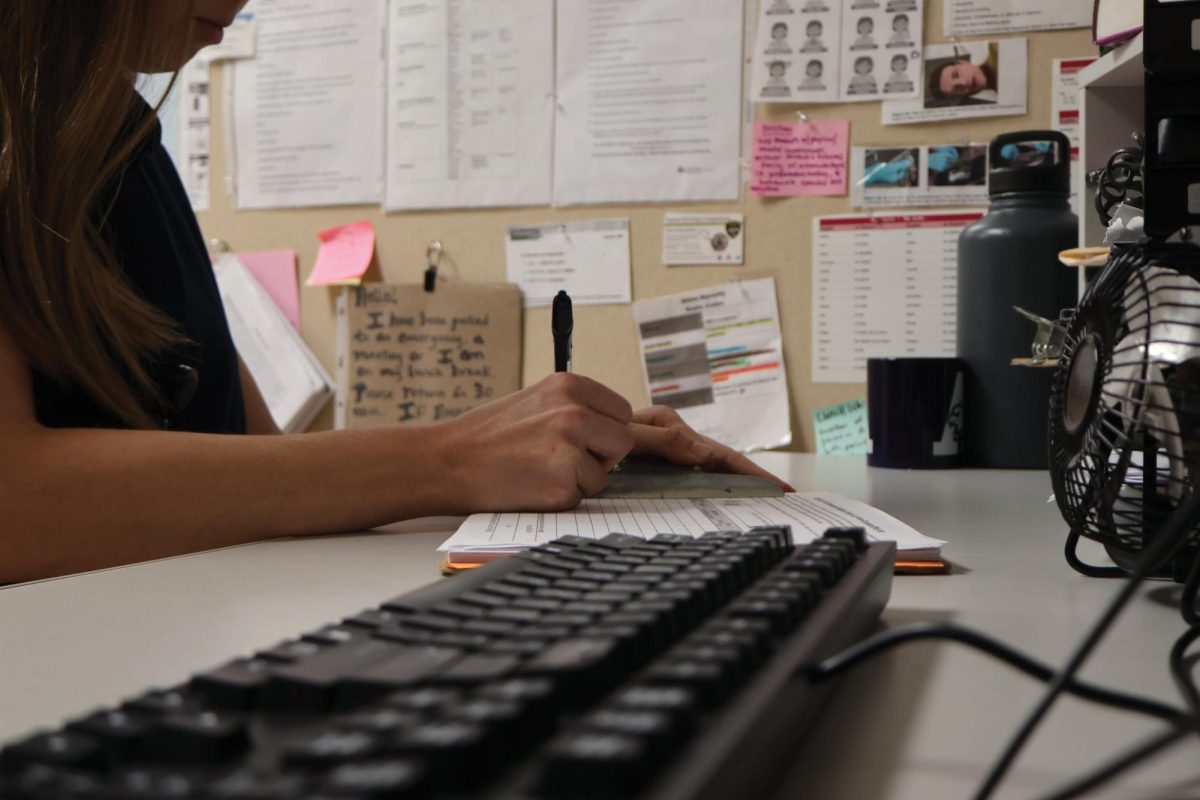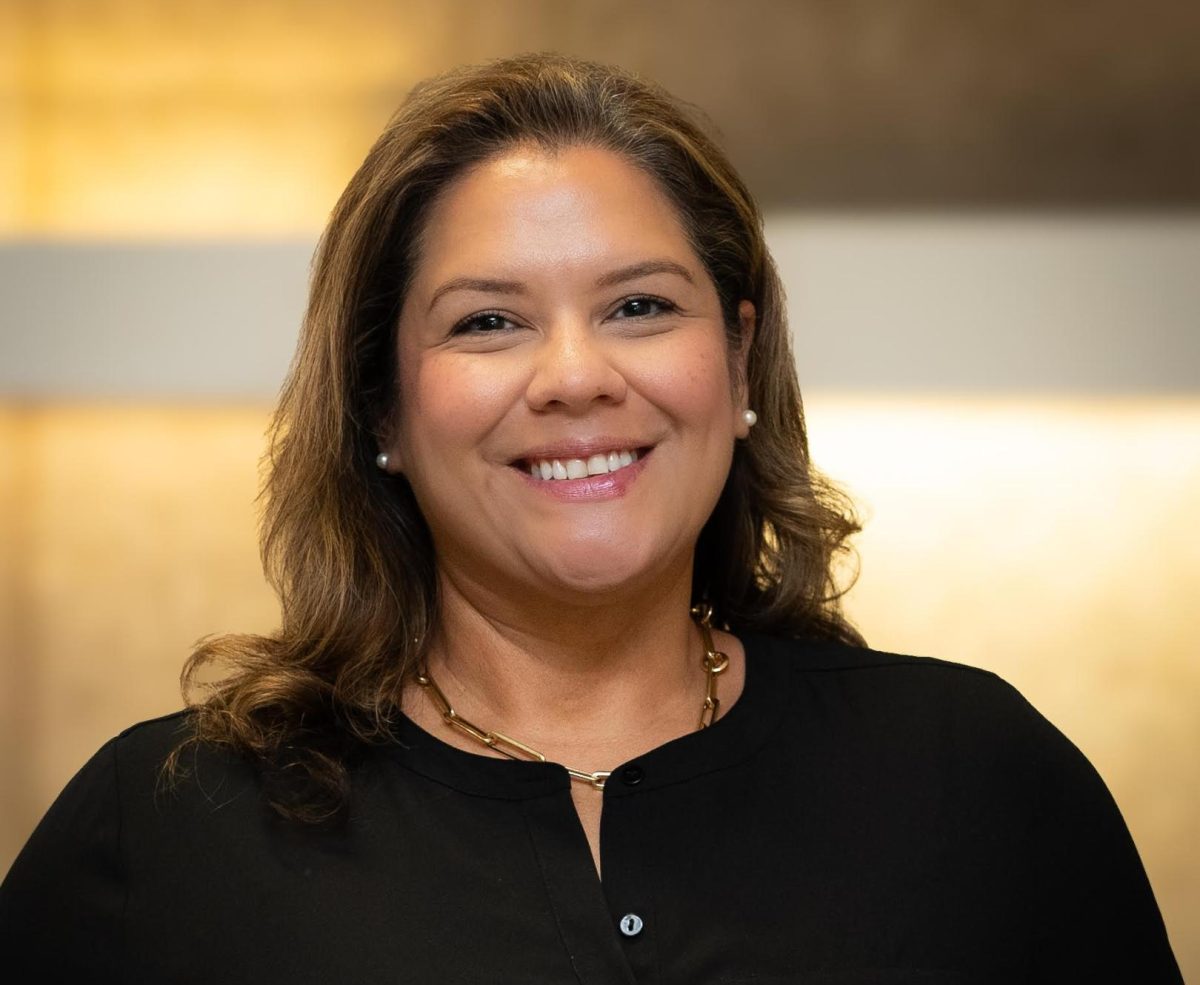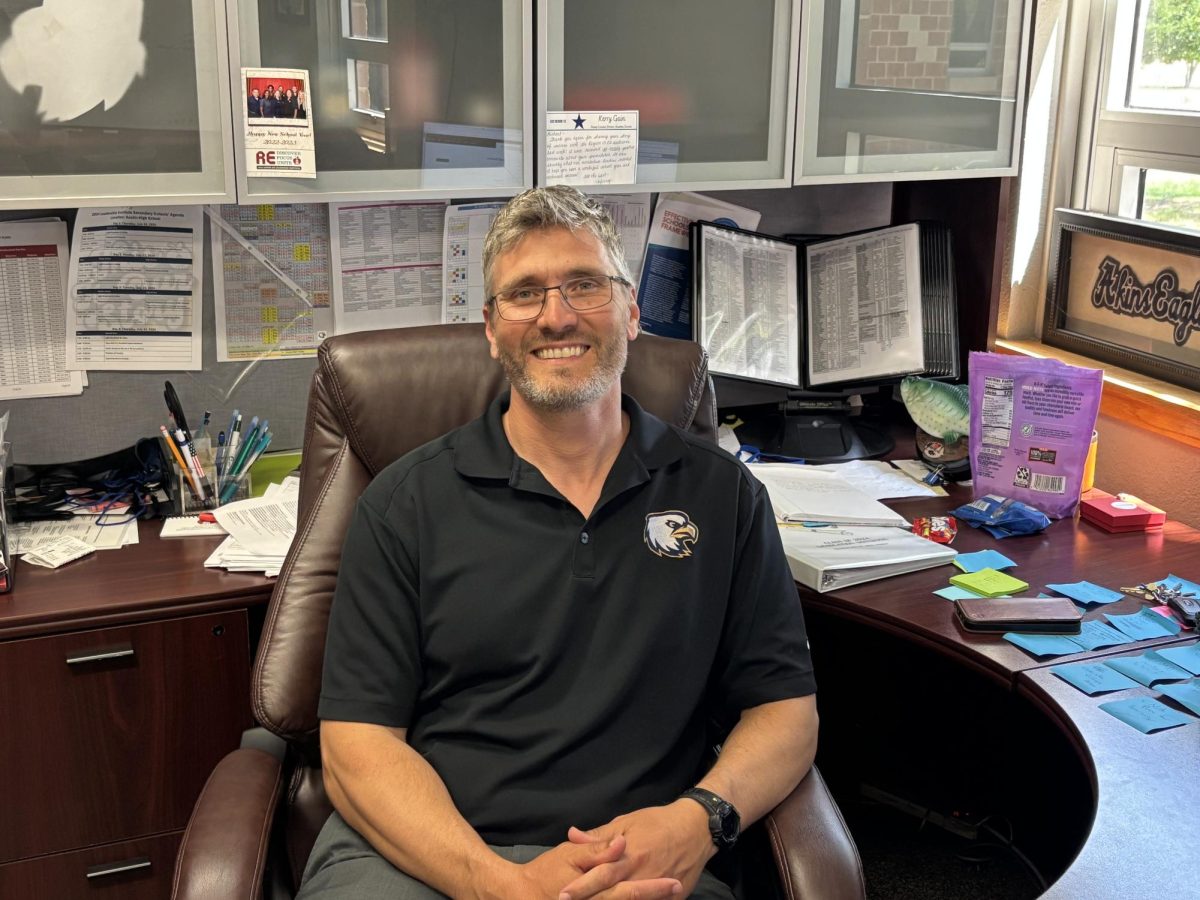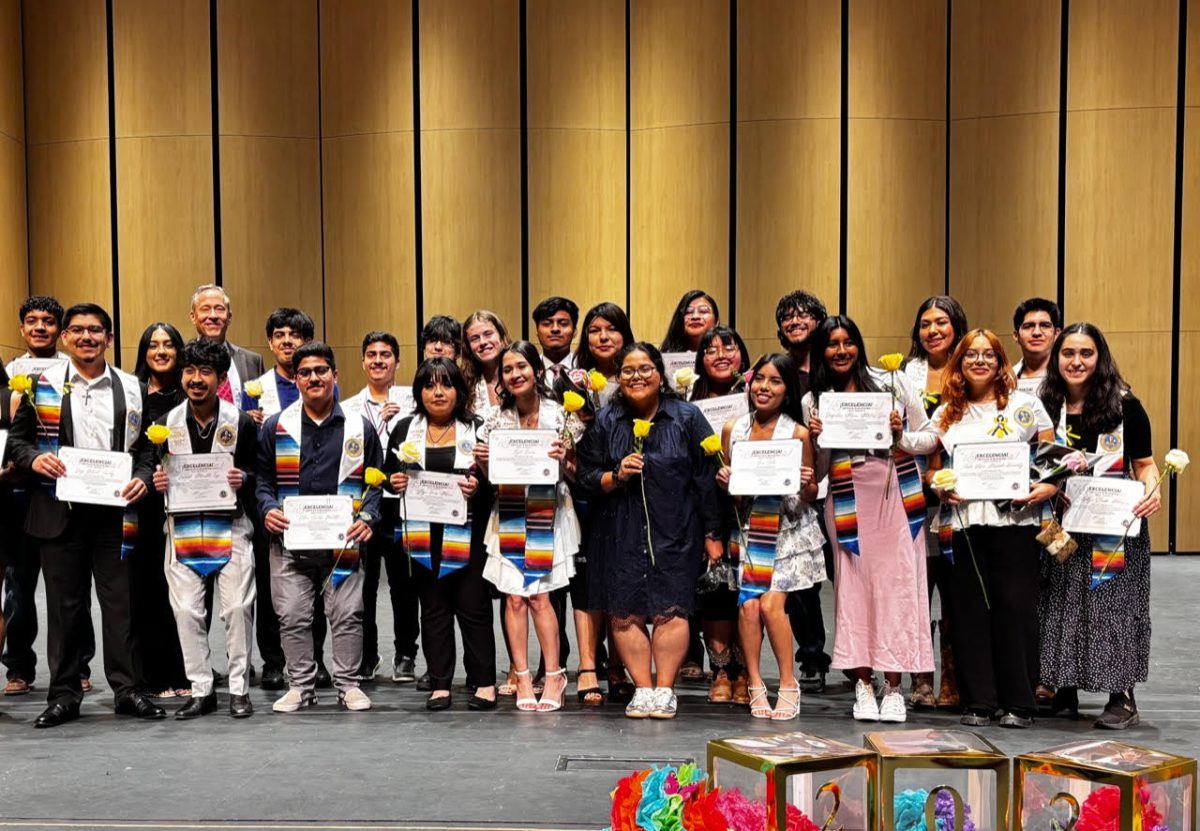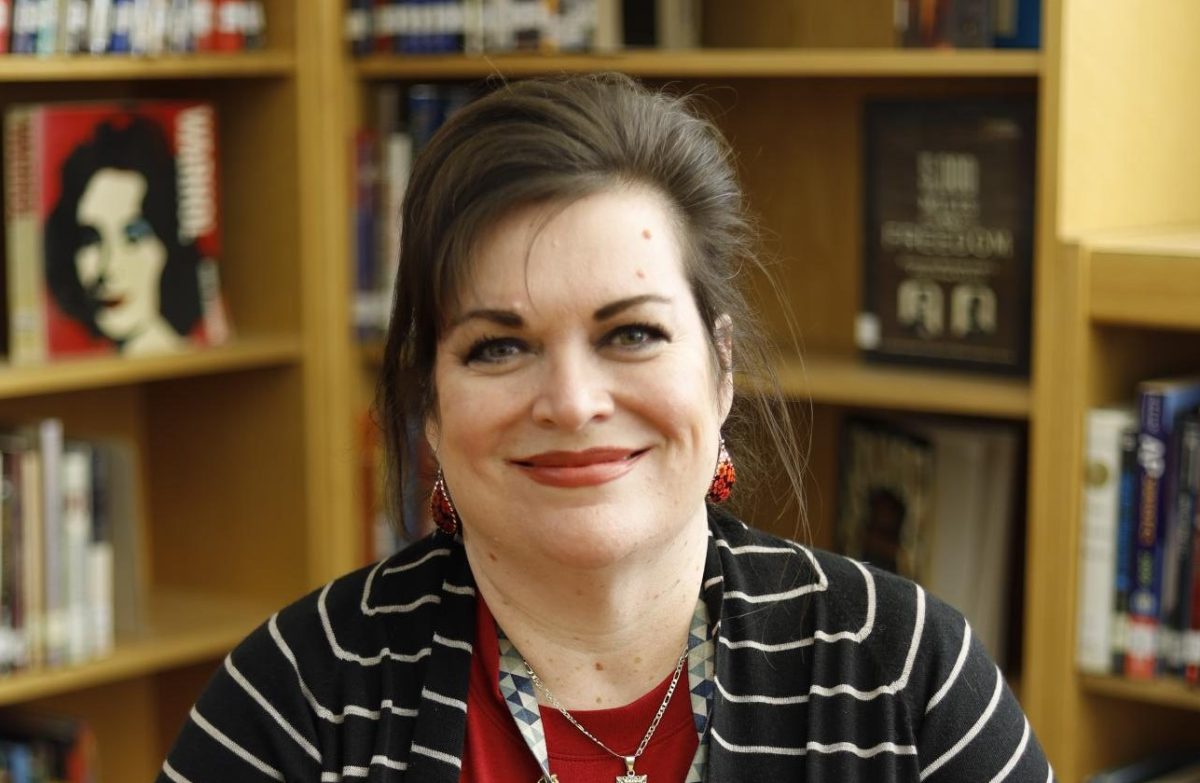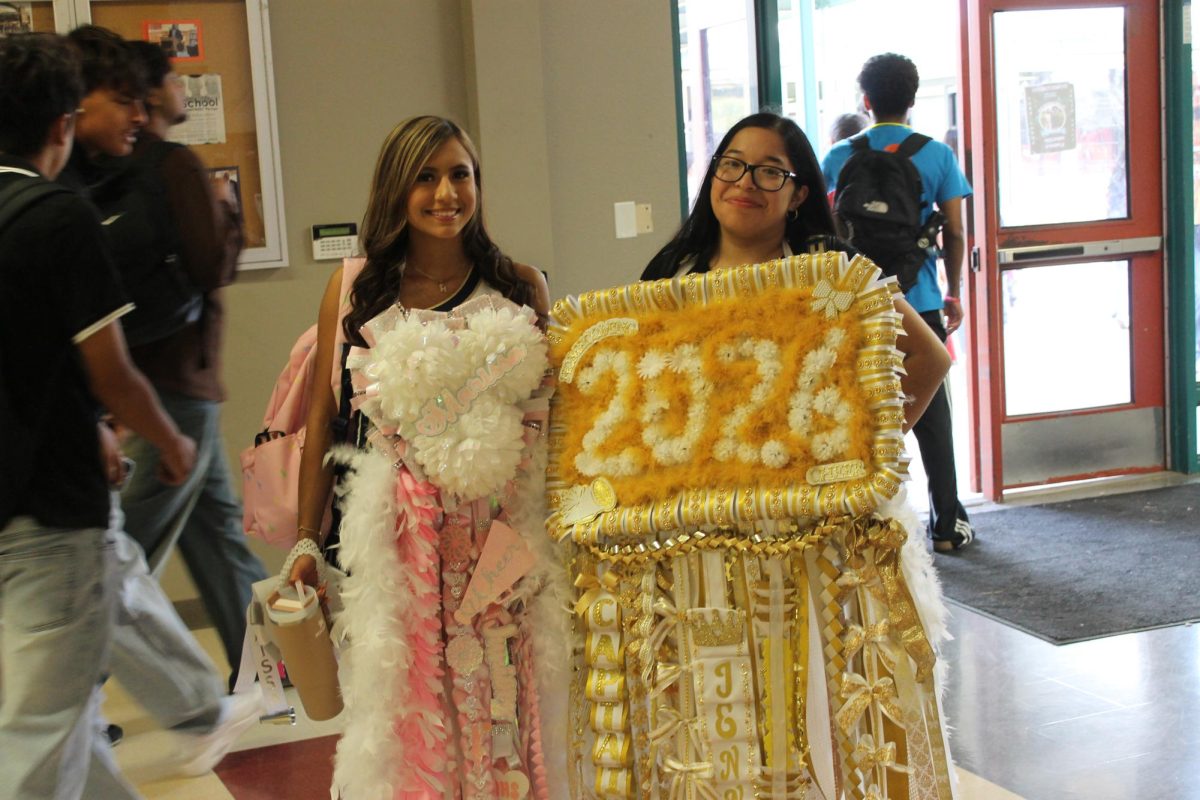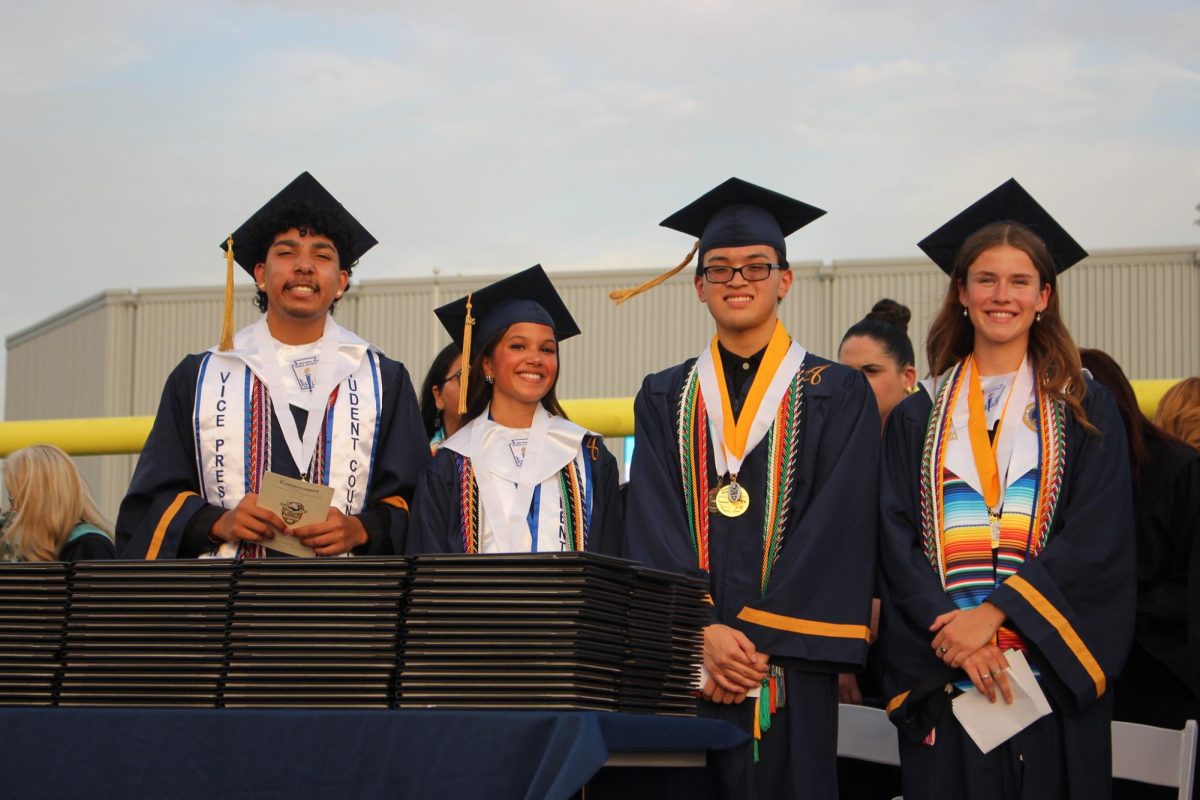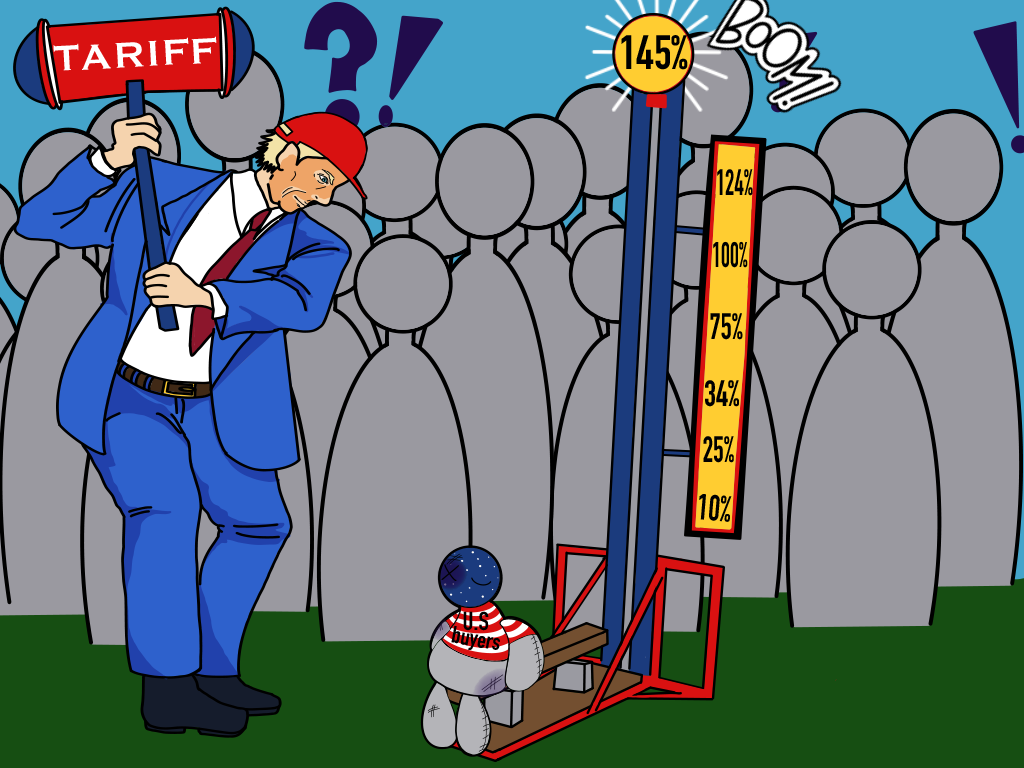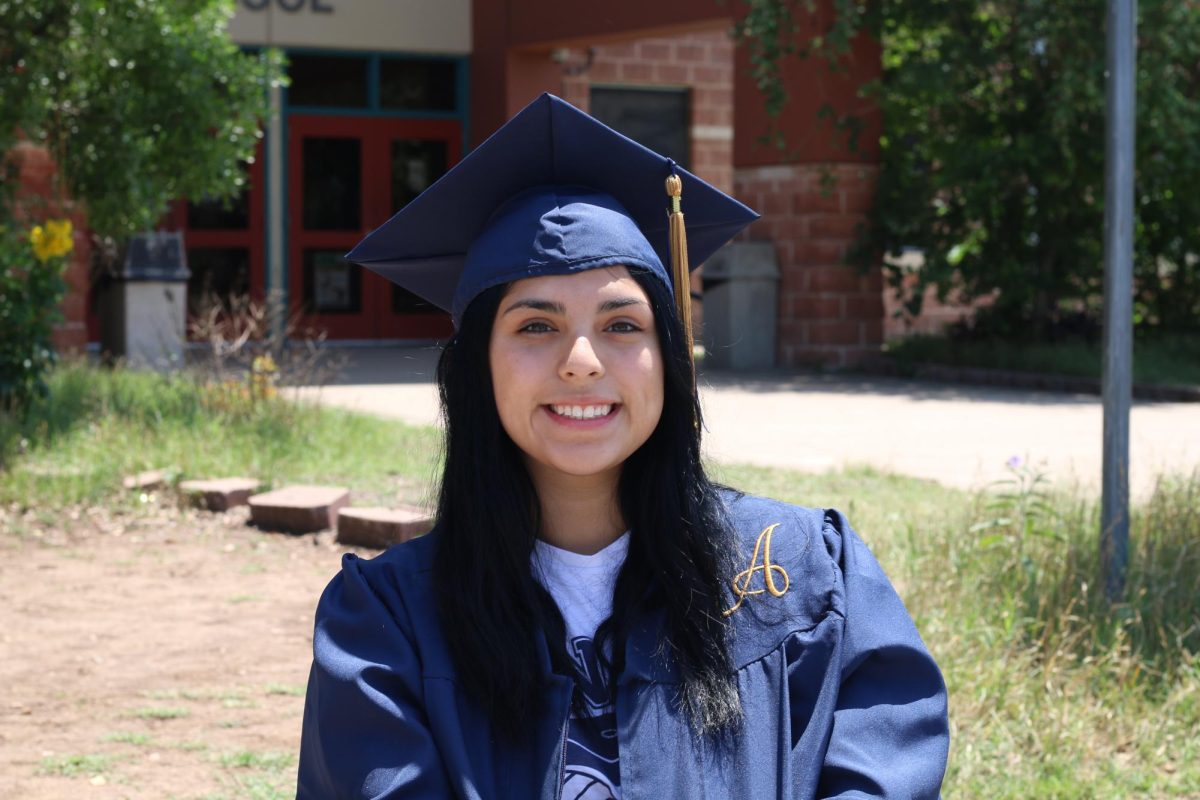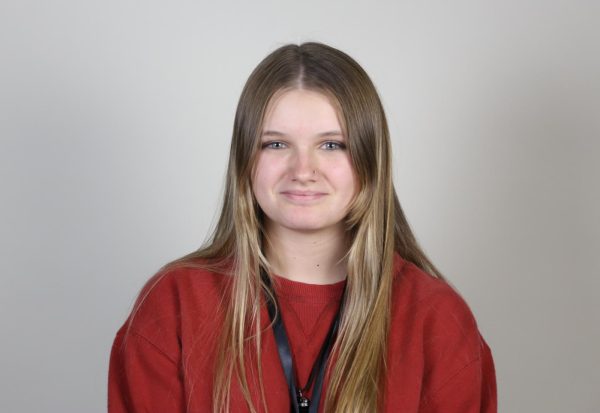In January, Akins FFA members demonstrated the love and attention they put into raising animals by putting them on display as they competed in the Travis County Youth Show.
Akins FFA students brought home more than two dozen awards at the livestock show where they showed off sheep, goats, pigs, rabbits, and chickens that they raised themselves. Kayla Hughes, Akins agricultural science teacher and FFA Adviser, said her students were successful at the stock show after raising their animals since the summer.
FFA students are required to feed their animals twice a day, including on holidays, Hughes said.
“It builds a lot of responsibility and students really learn a lot about themselves because they have something else that relies on them for life,” she said. “It’s a big family in the barn and everyone is friends and builds a lot of comradery amongst students but also teaches a lot of responsibility.”
Hughes said raising animals for a stock show requires a lot of work, time and commitment.
“Those animals don’t have anyone else to take care of them,” she said. “So even when it’s freezing and school is closed they still have to come up with events and feed those animals. They are on strict diets with supplements to help them grow and gain muscle while also having an exercise program of being walked daily and building their muscle to be competitive at some of the shows.”
Hughes said she hopes her students are learning lessons about responsibility and communication through raising livestock animals.
“It’s not always sunshine and rainbows,” she said. “Sometimes it gets really hard because those animals get sick or pass away or have to be put down because they are so sick. So it teaches students a lot of grit and determination and working hard toward something while also understanding that agriculture is a necessity for life. And that eventually these animals are going to go into the food chain and help support the food industry.
Hughes said she thinks participating in FFA livestock shows helps students learn an appreciation for agriculture and where food comes from.
“Because agriculture is something that we oftentimes take for granted,” she said. “We take food for granted. Food availability in our grocery stores and it’s not a luxury that everyone gets to have beef, pork, and chicken right at the hands of everyone. So I think if anything I hope my students learn to love and appreciate agriculture and where their food comes from but I also hope that they take away the good, hard life skills it takes to raise livestock.”
Senior Amaris Maldonado, who won first place for a fine wool cross lamb and third place for medium wool sheep, said preparing for a stock show is a lot of work.
“It’s like having children, like little newborns,” she said. “These sheep and goats are just pampered. They even eat gourmet food. If something is going on with the animal we get them supplements and that is a lot of money, work, and time.”
Maldonado said they have to take their animals out for exercise every day.
“You walk them and run them and then after you still come in and physically work them to get them ready for the shows,” she said. “And then you still have to clean their pens, clean the barn, feed them, and water them and that’s with each animal you have.”
Maldonado said she doesn’t have free weekends.
“I’m here at the barn about three hours a day, maybe more. After school every day I come and work with them all until 7 or 8. So it’s a lot of dedication and time.”
She said she worked in the summer as a lifeguard to raise money to pay for her animals.
“They cost a lot. My first animal was $3,000 just for the animal, not all the extra fees including boarding and food,” she said. “I also got support from my parents.”
Senior Sarah Thomas, who won one first place for a Southdown Reserve goat, said the stock show gave her a glimpse of what it is like to work in the livestock industry. Raising animals has become a dominant part of her life, she said.
“For the past four years, it’s been my life actually,” she said. “Every day twice a day you come into the barn, feed your animals, work with them, run and walk them, and it’s kind of draining honestly,” she said. “You come in here and sometimes you want a day off but there are no days off when it comes to raising livestock, they’re actual living beings whose well-being is your responsibility.”
Thomas said that competing in youth stock shows is like operating a small business.
“Raising livestock is an entrepreneurship, in my opinion,” she said. “It’s all investment. So my parents gave me money in freshman year 2020 to start off with purchasing a goat, and from there I sold him and the money we got back went into the next animal and it’s all a cycle from there.”
Thomas said it can be tough to say goodbye to their animals once they are sold at the stock shows.
“You’ll have all these experiences with the animals and you have this bond with your animals, they’ll be able to look back. And I told myself every year at our last show … I’m not going to cry when I give them up but I always do because, in the end, it’s my animal that I’ve raised since they were little. It really pays off in getting to see my animals getting big ribbons at the very end.”
Thomas said she has learned a wealth of information by participating in FFA.
“It’s not only raising livestock it’s also helping out other programs because they’re also affiliated with FFA. They helped me learn speaking skills. They help you with more hands-on skills you could take into other industries like welding or woodwork, and even food production. But it pretty much all comes down to agriculture. You’re always in agriculture, the world revolves around it.”
Lily Gonzalez, who has a Southdown sheep that was a Grand Champion and a Showmanship Finalist at the Travis County Youth Show, said involvement in FFA has had a lot of positive benefits.
“I want to become a livestock veterinarian. So by raising them, I get to learn all aspects of them and what goes with how to raise them. Then I also want to start my own Southdown sheep production business. So by starting out here in high school with just one animal, it helps me know what I need and what I want to look for when I start my own business.


